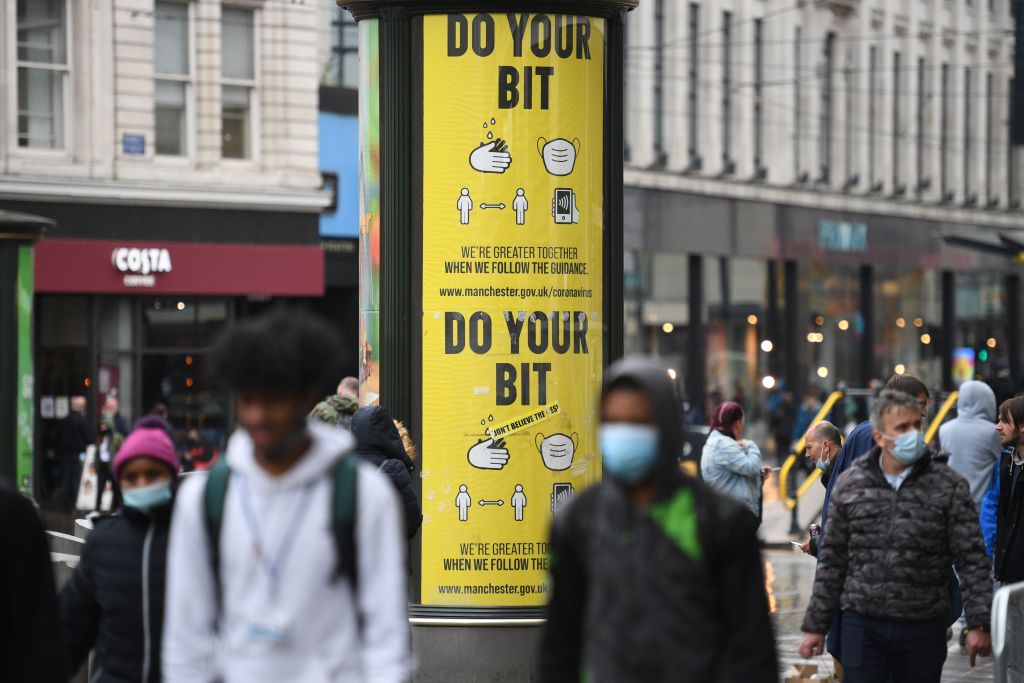If you believe that the whole system is racist, it’s only natural that you’ll interpret every bit of evidence as proof that racism exists everywhere. It certainly seems that way when it comes to Covid.
When it emerged earlier this year that a substantial number of the doctors and nurses who died from coronavirus in the early stages of the pandemic were black, Asian or minority ethnic, it didn’t take long for people to say it was further proof of systemic racism in Britain.
In response to the outcry, Public Health England carried out an urgent analysis and in June suggested that racism had contributed to that fact that, in terms of raw numbers, members of BAME communities were indeed disproportionately more at risk of catching or dying from Covid. Plenty of activists could barely contain their glee at PHE’s findings, and it led to headlines like ‘historical racism may be behind England’s higher BAME Covid-19 rate’.
Only it now appears that PHE were mistaken. A more up-to-date analysis released today by the government’s Race Disparity Unit (RDU), led by Dr Raghib Ali, has found that the Covid risk to ethnic minorities is ‘not explained by racism’.
The problem with PHE’s analysis was that it didn’t control for lots of really important risk factors such as underlying health conditions, the jobs people do, or where they live. The new analysis does, and found that when you adjust for these things, most (but not all) of the disparities disappear.
We don’t yet know if the remaining disparities are caused by racism, or if this is down to other risk factors that have not yet been controlled for – like air pollution, Vitamin D levels, or overcrowded housing. The RDU are rightly looking into this further. After all, if racism stops people staying well or getting access to health services, then we absolutely need to know about it. But if this isn’t caused by racism, saying so is not only divisive but counterproductive.
There were another couple of interesting facts inside today’s report. It found that whilst non-white groups had higher Covid-related death rates than white groups, their non-Covid death rates were much lower. In other words, if you are not white, you are more likely to die from Covid, but less likely to die from other causes. Overall mortality rates between white people and ethnic minorities were no different.
There is a worrying aspect to all this. When the media commentary blames racism for every issue, it puts pressure on politicians to make bad policy decisions which aren’t based on fact, and which can lead to poorer outcomes all round. Playing the race card doesn’t just divide us, but could cost lives.
Thankfully, on this issue and a few others, there are signs that this government are staying cool in the heat of media hype and following the evidence, not emotion.
Before running the Campaign for Common Sense, I worked in state education for nearly 20 years. I saw the same kind of thing creep into the narrative.
For example, certain non-white groups have higher rates of expulsion from schools. To some this is clear evidence of a racist school system. Yet, like Covid-disparities, when you control expulsion rates for other factors, only a couple of non-white groups had higher rates of expulsion than white groups.
This mindset historically led to excuses being made and expectations being lowered, rather than a serious attempt to understand what was going on. It took a huge amount of effort to challenge it and to get people to focus on the things that really matter: discipline, school culture, what is actually taught, and how. And the great thing is, these things benefit everyone, and children from underperforming groups benefit the most. It’s a win-win approach.
It’s the same for health and addressing Covid disparities. We can focus on the spectre of systemic racism – or we can focus on practical steps that will actually improve health outcomes and people’s lives: clearer communication about personal risks, cleaner air, better education, the quality and density of housing, the pay and range of jobs open to people wherever they live, and so on. These policies might not get the most headlines or win plaudits from political pundits, but they’ll save the most lives in the end.






Comments